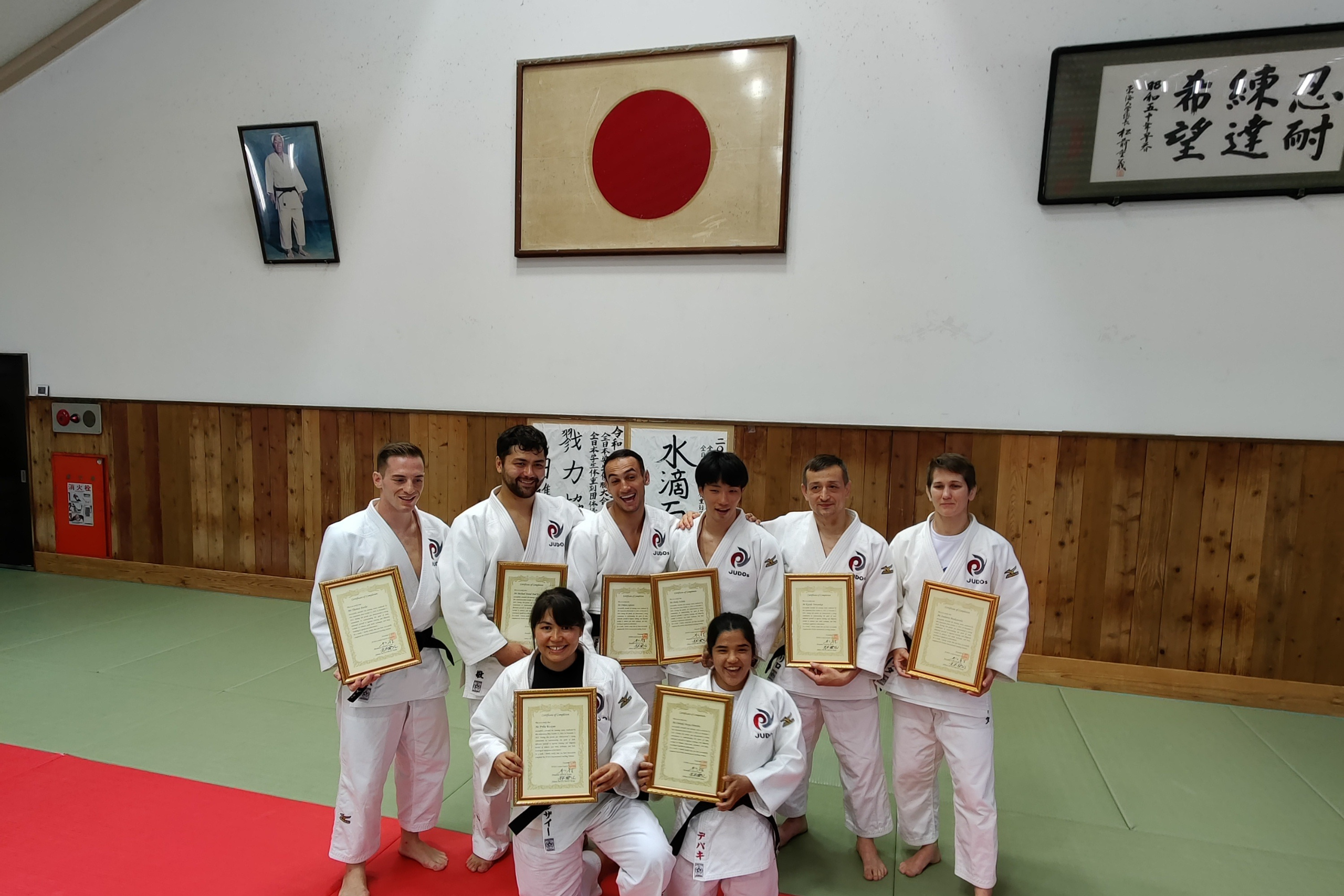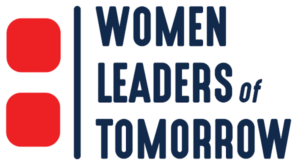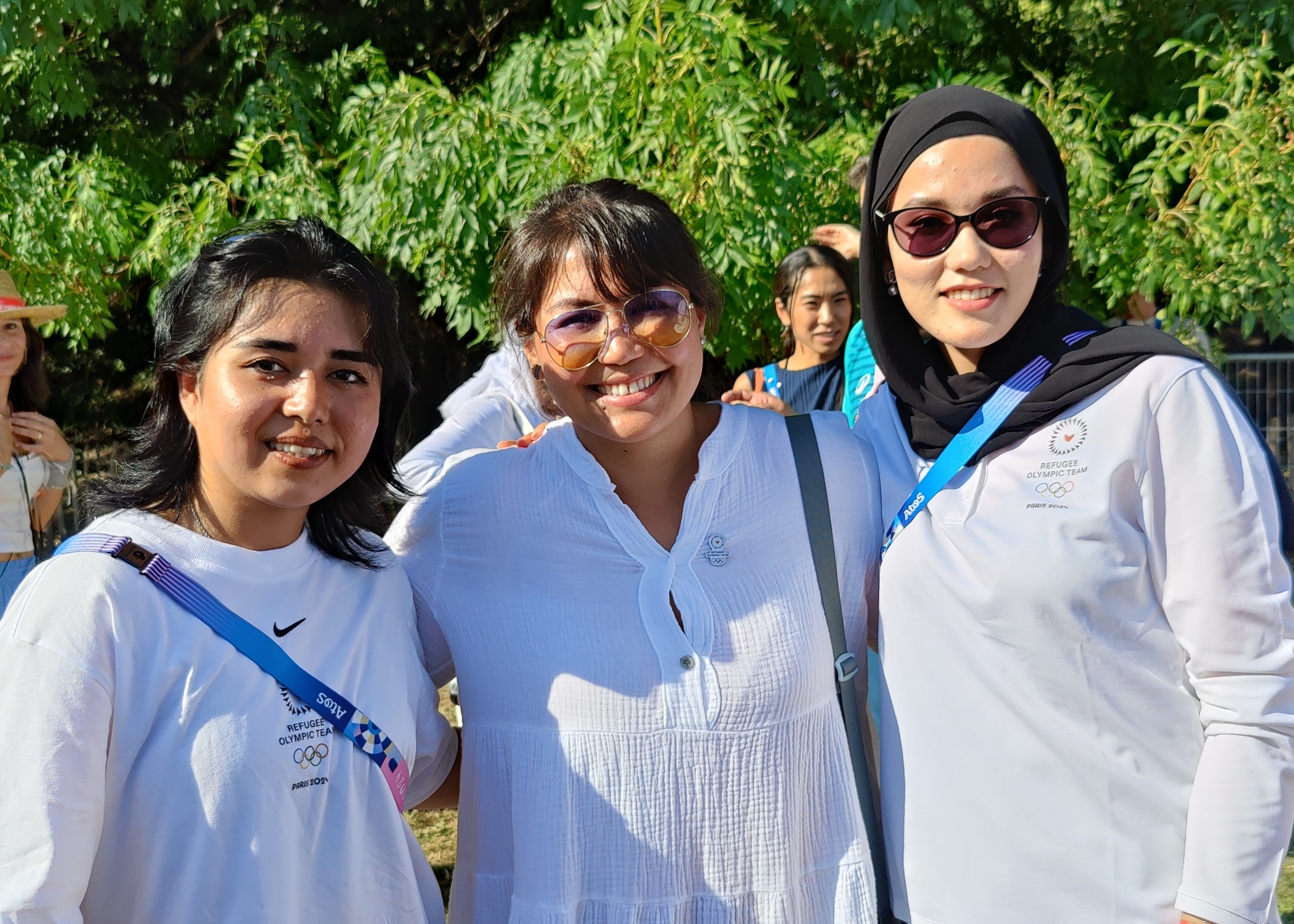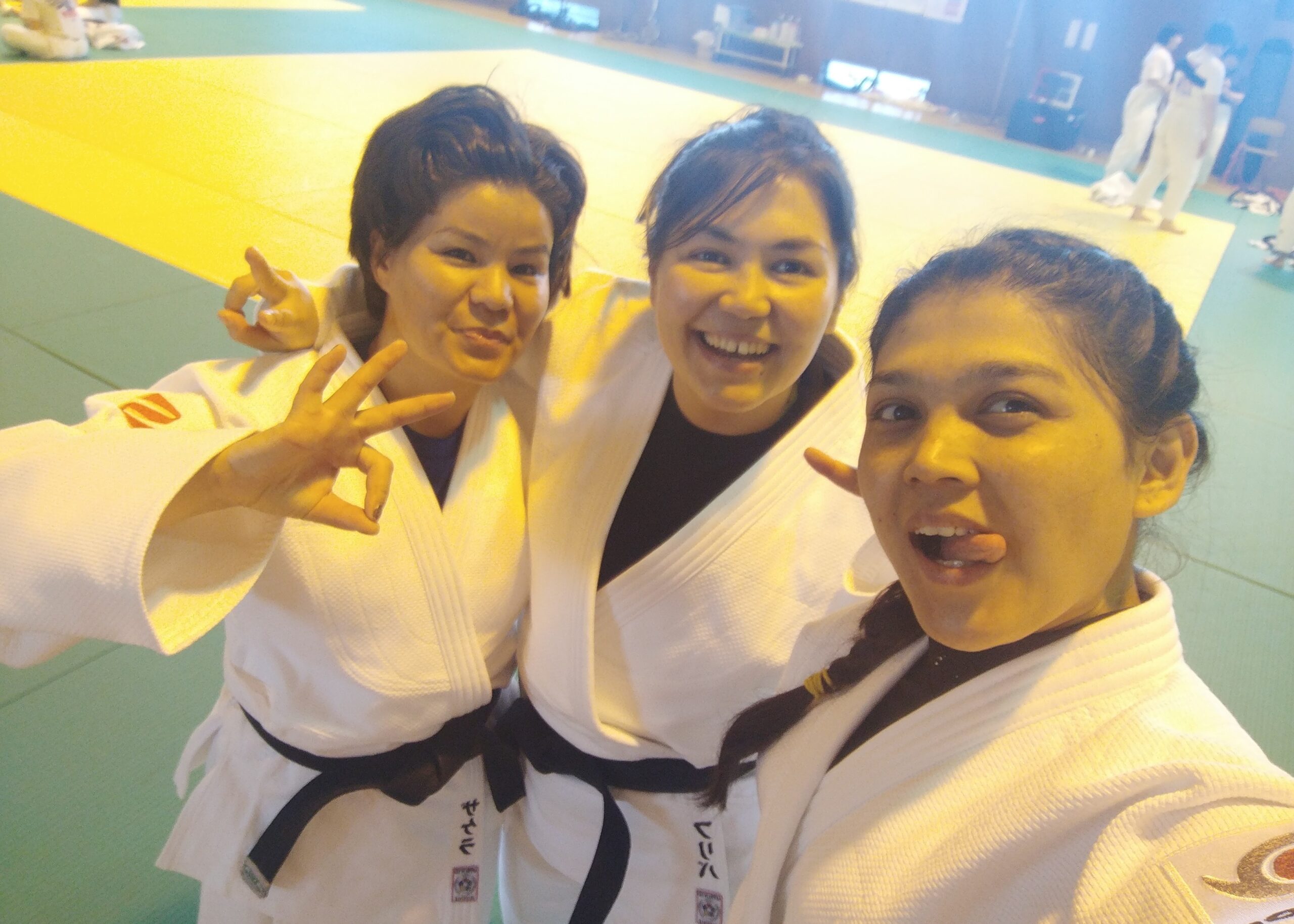
Country
Afghanistan & Canada
Organisation
WLOT

Key Words
Leadership, Empowerment of Women and Girls in and through physical Education, Physical Activity, and Sport (PEPAS), Gender Equality in and through PEPAS, Afghan Women, Afghan Female Athlete
Themes
-
- Gender Equality in and through PEPAS
- Gender-Based Violence (GBV) Prevention and Empowerment
- Education and Leadership Development
- Safe Spaces and Virtual Inclusion in Conflict Context
Author
Friba Rezayee, Executive Director of Founder & Women Leaders of Tomorrow (WLOT) and Founder of its own sports program, Girls of Afghanistan Lead (GOAL).
Afghanistan’s first woman Olympic athlete at the 2004 Athen’s Olympic Games (for judo).
Summary/Overview
Friba Rezayee, founder and Executive Director of Women Leaders of Tomorrow (WLOT) and its sports leadership initiative Girls of Afghanistan Lead (GOAL), is a pioneer in advancing opportunities for Afghan girls and women in sport. Born and raised in Afghanistan, she made history at age 18 by competing in judo at the 2004 Athens Olympic Games, becoming one of the first Afghan women to represent the country at the Olympics. Her participation symbolized Afghanistan’s return to the global sports stage after the fall of the Taliban in 2001 and inspired hundreds of girls across the country to pursue athletic dreams.
Based in Vancouver, Canada since 2011, Rezayee holds a degree in political science from the University of British Columbia. She has long been a passionate advocate for education, gender equality, and human rights—both in Afghanistan and internationally. Since the Taliban’s return to power in August 2021 and the severe restrictions placed on girls’ access to education (banned education above third and sixth grade for women and girls), WLOT has helped 28 young Afghan women obtain full scholarships in Canadian educational institutions. Twenty of them are currently continuing their studies in Canada, including two athletes who had been banned from participating in sports under Taliban rule.
One of these athletes has graduated with a diploma in Health & Fitness Promotion, while the other is currently pursuing a university degree in Sports, Physical Education, and Leadership. Both are among the few Afghan women building careers in sport at both academic and professional levels and are preparing to compete internationally.
In addition to the GOAL and scholarship programs, WLOT also runs Afghanistan Learns Online (ALO), a virtual education platform offering one-on-one English tutoring. This program offers one-on-one English language lessons by connecting each student with an English language teacher from North America in Afghanistan. This program provides a crucial alternative to formal schooling for girls who have been denied the right to learn under the current regime.
Problem Statement
Since the Taliban’s return to power in Afghanistan in August 2021, life has drastically changed for girls and women across the country. One of the regime’s very first decrees was to ban all sports for women and girls, criminalizing any participation in athletic activities and threatening harsh punishment for those who defied the rules. This makes Afghanistan the only country in the world where sport is illegal for girls and women.
These restrictions have shattered the dreams of countless young athletes. Many have been forced into hiding, while others have fled the country seeking asylum in countries such as Canada, Australia, the United States, Germany etc. For those who remain, opportunities are extremely limited, but not entirely gone.
Thanks to initiatives like GOAL, some Afghan girls continue to practice sports virtually. Effectively, from Canada, Rezayee and another judo instructor lead online martial arts classes, thus offering young Afghan girls the chance to stay active, build confidence, and reclaim a sense of community and identity. These sessions are more than physical training, they are a form of empowerment, mental health support, and a powerful reminder to the participants that they are not forgotten.
About the Programme
One of the central objectives of the GOAL program is to actively address gender-based violence (GBV) by equipping participants with the tools to recognize, understand, and respond to it. Through structured training sessions, girls and young women not only develop physical strength and self-defense skills but also gain critical awareness about the social and psychological aspects of GBV. This holistic approach empowers them to stand up for themselves, advocate for their rights, and become sources of support and protection for others in their communities.
To fully grasp the significance of the GOAL program, it is essential to underscore once more, the dire Afghan context. Under Taliban rule, men are given unchecked authority over the lives of their sisters, wives, and mothers, this includes the power to forbid them from participating in sports. As a result, every time a girl or a woman dares to engage in athletic activity, she is making a powerful statement: she is fighting for her basic right to move, to express herself, and to exist in public space. These acts of defiance are not just about sports—they are daily acts of resistance against gender-based violence and systemic oppression. Despite the risks, these girls and women continue to show extraordinary resilience, using sport as both a tool of empowerment and a form of protest.
Our vision is for Afghan women is to have access to high-quality education, and to have the freedom to choose their career paths and lifestyles.Learn more about the supporters of the GOAL program.
Additionally, GOAL helps find short term sports leadership training opportunities for Afghan women in different sports and locations. The purpose of GOAL is to help underprivileged Afghan women to gain leadership in sports coaching roles and become instructors. The long term idea is to allow them to open their own sports clubs or to become professional athletes.
The first GOAL leadership and coaching class took place in January 2020 at Tokai University in Hadano, Kanagawa Prefecture, Japan with partnership of the Japanese Judo Federation and the Japanese domestic non-profit organization “JUDOs”. The two recipients of this GOAL training were our members Parwin Askari and Zakera Hosseini. The duration of the coaching class was 12 days from January 18th to January 31, 2020. After attending this coaching seminar led by Japan’s double Olympic gold medalist Judoka Kosai Inoue, Parwin and Zakera were readied to lead the girls’ dojos in Afghanistan.
Finally, the program also plays a key role in connecting the Afghan national Judo team with international donors and funding opportunities, helping to meet both the training and infrastructure needs of Judo dojos (Judo centre) in Kabul. As part of this effort, GOAL facilitates English–Farsi translation to enable communication between Afghan athletes and international Judo organizations. It also provides administrative support, including assistance with travel logistic, competition arrangements and more—for Afghan women participating in international tournaments, ensuring that athletes can focus on their training and performance.
Outcomes
The first and most significant behavioral change has been observed within families, followed by male coaches and male counterparts during competitions in Afghanistan. Since the girls enrolled in the program and began benefiting from GOAL’s professional coaching and training methods, they have become, generally, more empowered, able to stand up for themselves, and capable of engaging in conversations about gender equality at home.
It is important to understand that Afghan families are often traditional and religious, and initially not inclined to support sports for girls and women. However, when the girls show consistency, adopt healthy lifestyles, pursue an education in sports, and take on leadership roles, families tend to become more open. The GOAL organizers have witnessed real shifts in attitudes—from firm resistance to active support of their daughters’ participation in sports.
Additionally, when some of the athletes participated in professional Judo training in Japan in 2019, they gained valuable knowledge about the sport and professional coaching. Upon returning to Afghanistan, they were able to work as coaches or instructors. This not only provided them with an income, but also helped foster greater respect and equality within their households—because having a source of income gives women more agency and recognition.
Successes
The GOAL program has actively contributed to advancing gender equality by supporting two Judo athletes, Roya Shafai and Zakera Hussaini. Both were members of the Afghan women’s national Judo team and trained regularly under the previous Republican government. However, when the Taliban regained power, they and their teammates were immediately barred from accessing the dojos, as all sports facilities were closed to women across the country.
Friba Rezayee shares:
“I was coaching them back then. Both athletes were determined for their sports careers, and right to play. Roya didn’t give up, and she kept going to a secret gym in Kabul where only women could workout. She was able to go the gym for a while, until the Taliban fighters found it out, raided the gym, and hit Roya with butt of the AK-47 on her arm. She was badly bruised. She contacted me, and I immediately helped her go to the neighbouring country Pakistan for safety, and she did. While she was in Pakistan, I helped her secure a full-ride scholarship at a collage in Canada to study Health & Fitness. She has successfully finished the program and is graduating in June 2025”.
While studying in College, Roya continued her athleticism. She participated in a cross-country race and won a prize. Her story has been featured on the Canadian mainstream media. Click here to read all about it.
Friba continues with her second success story, sharing with us that:
“Zakera Hussaini’s, like Roya, was a member of the Afghan women’s national Judo team. When the Taliban returned, they raided her house looking for any documents that will identify her as an athlete to punish her. She escaped to a local shrine by the help of her sister and hid in the shrine for 12 hours until the Taliban left her family house. She also immediately evacuated to Pakistan and continued her Judo training there. While she was waiting in Pakistan, the GOAL program found her a full-ride scholarship at Cape Breton University in Canada. She was awarded the scholarship, and she is now studying Sports, Physical and Leadership. She is continuing her Judo training at a professional level in Canada. She has received her black belt recognition from Judo Canada. She also attended women’s self-defense certificate, and holds seminars to teach women and girls self-defense”-
Zakera aspires to become a successful Judo athlete and is currently training and preparing for an upcoming Judo tournament in May 2025. She was interviewed by the Canadian Broadcasting Corporation (CBC). Click here for the full interview.
Challenges
Despite these efforts, major challenges remain. Firstly, the entire Afghan National Olympic Committee (NOC) is now under Taliban control, with many of its male members having aligned themselves with the regime. This means that all national sports federations are effectively governed by Taliban authorities. Their leadership doesn’t and won’t allow women and girls to play sports.
Another persistent and significant challenge is the online harassment of female athletes by men in coaching positions—both within and beyond Afghanistan. Friba addresses this by stating the following:
“Often, they [these men] want to continue to reproduce the extreme patriarchal practices on Afghan women and girls remotely. This means that athletes cannot travel without a male coach present, must share her personal life with the male coaches, must seek approval for her lifestyle —for example, what to wear, who to hang out with, what to eat, where to eat, how much money to spend, have a boyfriend or not, having a haircut or not and much more. The male coaches become the God in their lives. If the female athletes disobey them, she will be threatened, exclude from the training camps, WhatsApp group chats, competitions, discussion and shunned by them”.
She adds that “WhatsApp, Facebook Messenger, Instagram, and TikTok are used to harass the female athletes commonly. The best practice to overcome these challenges is educating the athletes about their rights to play. Give them the confidence and “permission” to block the online abusers. Let the girls know that they don’t owe the male coaches anything. Empower them to make their own decisions. Feel safe, provide safe places, and practices”.
The lack of representation of Afghan female athletes in Afghanistan and in exile is another recurrent challenge. The reality is that most often—it is the men in coaching, athletic, and sports leadership roles that speak on behalf of Afghan women. They speak but also make decisions in their place—frequently without their consultation or involvement. Finally, limited funding for this type of initiative continues to pose a considerable challenge.
Lessons & Recomendations
- Support the grassroots program such as the GOAL
- Listen to the Afghan female athletes
- Work with them
- Include them in the decision-making process of women’s sports
- Invite them for the conference, sports competitions, training camps
- Allocate funding for them
- Support them on social media
- Show solidarity with them
- Create educational opportunities at university level, for instance, scholarships
Additional Resources
Friba Rezayee kindly provided us with pictures featured in the PDF version of this story here below, and a video campaign available here. The association also shared with us a detailed list of their numerous media interventions. If interested, please click here.


